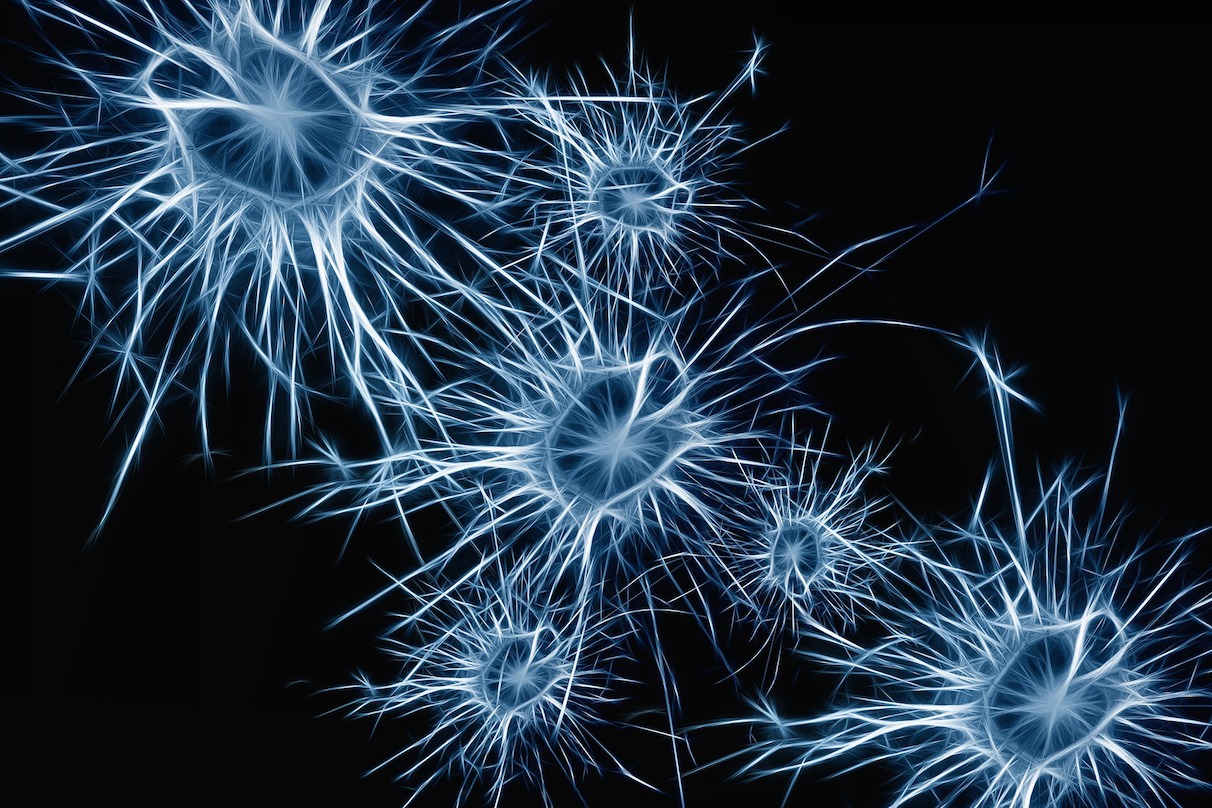Overview
Decades of research has been devoted to finding the cause of seizures. Associations have been made between reduced levels of nutrients, poor mitochondrial activity, GABA imbalances, glutamate receptor 5 antagonism, calcium disorders, celiac disease, soy-based diets, DYRK1A , and App gene over-expression causing accumulation of Amyloid-B protein and abnormal neuronal synchronisation.
Antiepileptic drugs which manage seizure attacks reduce the absorption of vitamins and minerals including Vitamin D and Calcium, putting patients at risk of developing bone disorders. Long term use causes deficiencies of all B vitamins including folate and B12 increasing homocysteine and risk of heart disease. There is also a risk of selenium and zinc deficiency which are needed to produce the antioxidant glutathione.
A New Approach
A new approach to treating seizures is emerging. Recent research from the Canadian Journal of Infectious Diseases and Medical Microbiology (2016) highlights a link between autoimmunity and the progression of seizures. It is verified that the onset of many autoimmune disorders is linked to the gut microbiome. A healthy gut not only improves digestive function and nutrient absorption, it can influence the way the immune system responds.
Seizures are one of the most common neurological diseases and causes of handicap and mortality. There are currently more than 70 million seizure patients in the world, and numbers are expected to increase in future. Many studies have confirmed a genetic basis for seizures, however environmental factors may also play a crucial role in its progression.
Autoimmunity and Seizures
Autoimmunity and pathogen driven autoantibodies are receiving increasing attention for their role in seizures. An epidemiological study documented that seizures and autoimmune diseases co-occur. Recent research has linked at least twelve autoimmune diseases with a higher incidence of seizures. The prevalence of seizures is .4% in a normal population and increases to 17.5% among autoimmune disease patients. The role of autoimmunity in seizures needs to be considered.

The Gut and Seizures
The intestinal microbiota is a complex community of trillions of organisms which have a mutually beneficial relationship with their host. The gut and immune system are closely connected and influence each other. The many species of microbes that reside in our digestive tract play an important role in flora balance and food digestion, and also in the progression of autoimmune diseases through balancing the immune system. Some species of microbes increase disease, while others prevent it. Probiotics containing Firmicutes and Bacteroides are useful in preventing type 1 diabetes, associated with seizures. Whereas segmented filamentous bacteria (SFB) increases the risk of several autoimmune conditions such as MS and arthritis. In view of the association between seizures and autoimmunity, the composition of species in the gut can increase or decrease disease progression.
Inflammation and Seizures
Inflammation within the brain is thought to cause seizures. Chemical messengers (cytokines) such as IL6, IL-1B, IL-1a and IL-1B-511 and interferon y, are usually higher in seizure patients than controls, linking the immune system with the progression of seizures. Recently it was reported that IL-17 A, a cytokine linked to T helper 17 lymphocytes responsible for increasing inflammation to fight infection, was elevated and correlated with seizure frequency and severity. Th17 cells have been demonstrated to be involved in the inflammatory response in many autoimmune diseases that impact the nervous system. Our gut bacteria have the ability to activate these inflammatory Th cells without causing inflammation, but sometimes they drive our immune system to autoimmunity. Bacteroidetes are thought to direct Th17 immunity. Microbial species capable of increasing Th17 cytokines include Clostridium, Bifidobacterium, Ruminococcus and Bacteroides.
New Approaches to Treatment
In addition to balancing the gut microbiota, certain phytonutrients have been found to reduce seizure activity. The polyphenol Resveratrol protects against various neurological disorders including seizures and neurodegenerative disease due to its anti-inflammatory, antioxidant properties. Also Curcumin is effective at reducing inflammation associated with chronic seizures. Low Glycemic Index diets are used to manage seizure attacks in children without being as restrictive as a Ketogenic diet.
In conclusion, there is increasing evidence that autoimmunity might play a role in seizures. Gut organisms may be an important factor in the development and severity of seizures and immune stimulation via the gut could provide an alternative strategy for treatment of seizures.
https://www.hindawi.com/journals/cjidmm/2016/9032809/
Schedule an Appointment www.theconsciouspod.com/schedule-an-appointment

